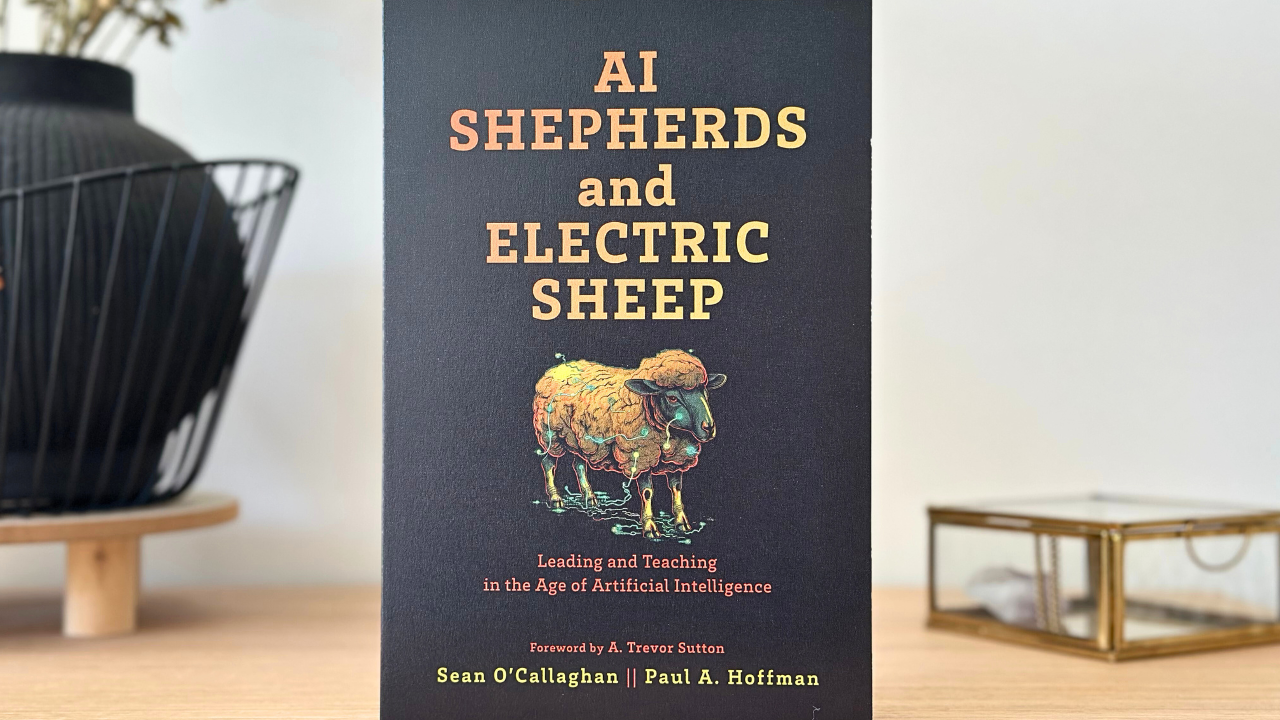AI Shepherds and Electric Sheep
How is ChatGPT Changing the Church? In AI Shepherds and Electric Sheep, Sean O'Callaghan and Paul A. Hoffman explore what it means to lead and teach in the age of artificial intelligence.
The book begins by introducing various definitions and types of artificial intelligence. AI operates through algorithms, enabling it to perform both simple and complex tasks. It can gather and analyze information and make decisions. The current and potential implications of AI are widespread—touching on religion, spirituality, and morality, as well as education, media, entertainment, and the arts. I was amazed to see how far technology has come, but also aware of the weight and significance it carries.
A key reflection from the book is what it means to be human from a biblical perspective: God is the only eternal being. Everything, including humans and all forms of technology, exists for His purposes and glory and should align with His revealed character and rule. AI functions best when it supports the relationships between God, humanity, and the created order. However, when machine learning begins to undermine divine and human bonds, it must be restrained.
The Imago Dei
The book emphasizes that the Imago Dei—the image of God—is crucial to understanding our dignity and identity as humans. AI has the potential to dehumanize, but it also has the potential to help humans flourish and participate in God’s work to restore all things.
Being human in the age of technology means being shaped by it. Not only does technology shape our surroundings, but it also shapes our souls. Christians are called to take an active role in shaping and directing technology so that it reflects kingdom principles and leads to freedom and flourishing, rather than bondage.
The book suggests that AI can be a helpful tool for ministry, particularly in streamlining and simplifying administrative tasks. It takes a cautious approach to using AI for sermon preparation and research, challenging preachers to remain responsible and discerning. One of the book’s strongest arguments is that congregants should expect more than AI-generated sermons—because AI has no soul, and therefore cannot commune with God or with other souls.
Actual Relationships
Spiritual formation happens through discipleship and sanctification. While the Holy Spirit is the central agent in this process, God has ordained that bodily, corporate practices play a role in our growth. This encouraged me to more fully seek and appreciate the tangible presence of others in our corporate gatherings as we worship, edify, and encourage one another. Rather than artificial connection, we must seek actual relationships—with God and with each other—as we pursue what it means to flourish as humans in faith.
I received a media copy of AI Shepherds and Electric Sheep and this is my honest review.Find more of my book reviews and follow Dive In, Dig Deep on Instagram - my account dedicated to Bibles and books to see the beauty of the Bible and the role of reading in the Christian life. To read all of my book reviews and to receive all of the free eBooks I find on the web, subscribe to my free newsletter.
